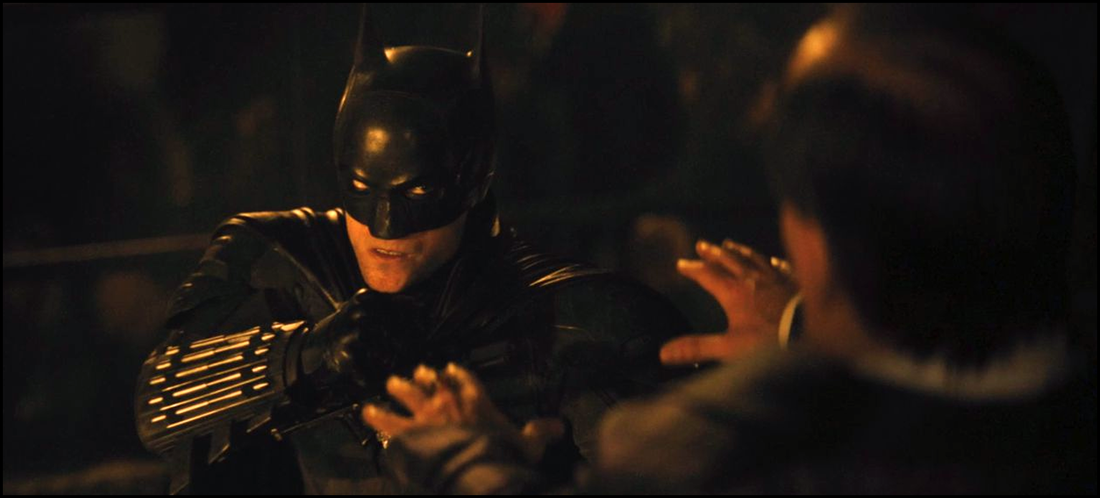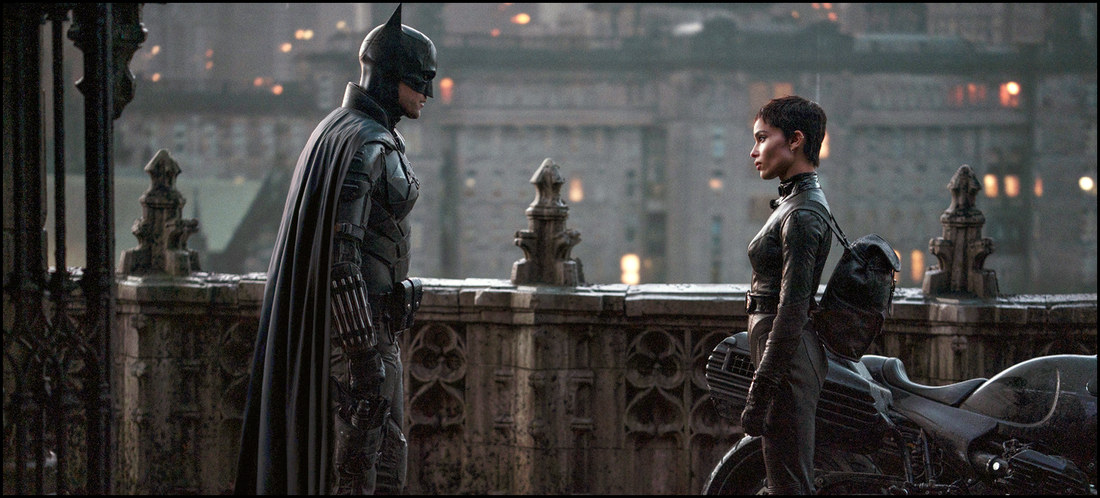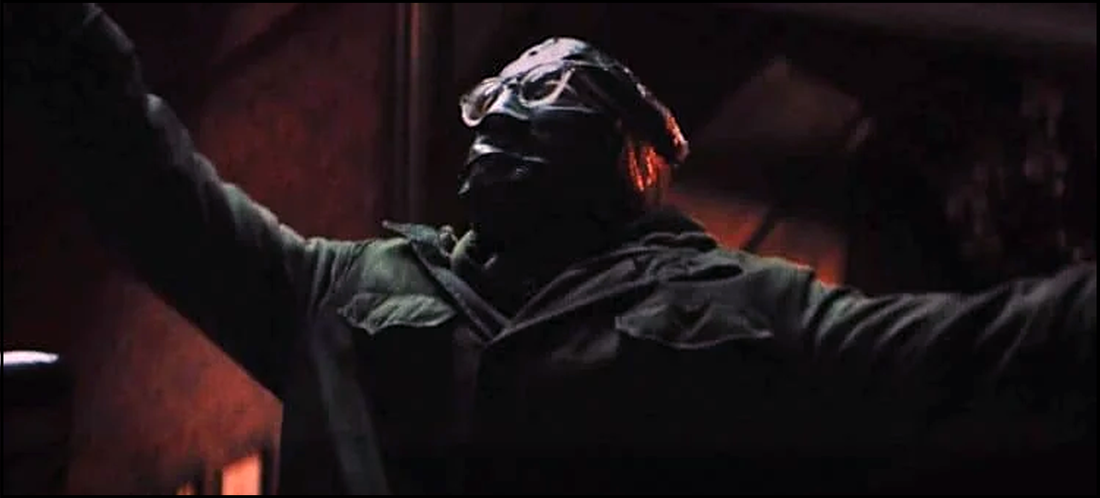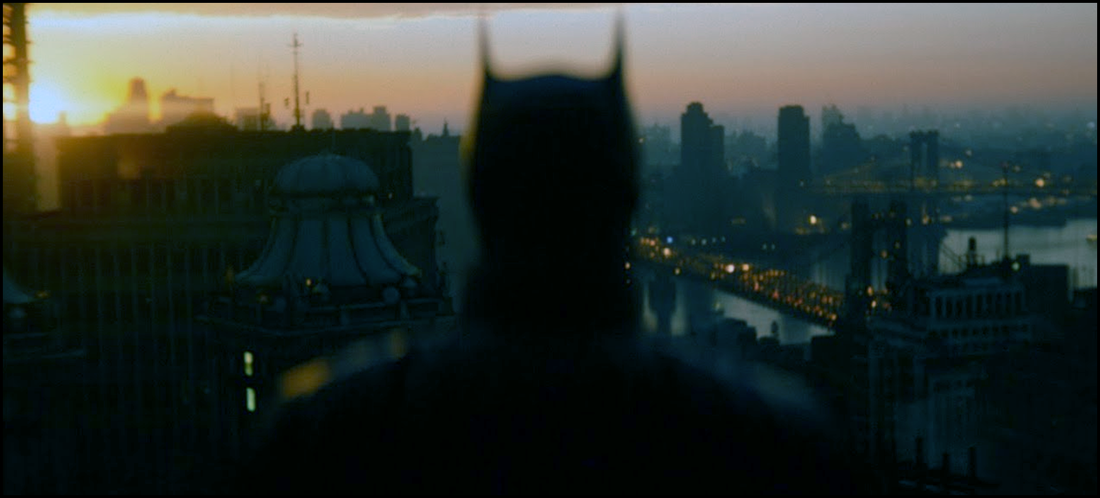I continued reading off and on over the next two decades plus, but I gave up regular reading probably in the late 1990’s / early 2000’s because it just got too damn expensive. Thankfully, prices have kinda/sorta leveled off; while that may’ve stemmed the exodus of readers from the comic book industry, I can’t imagine that business surviving with its current model for another century. Like all things, it’ll need to adapt in order to survive – much like the Batman has had to do himself as the dangers of modern villainy practically require reinvention from time-to-time – or it’ll go the way of the Dodo, as they say.
So – as you can guess – I’m always thrilled when there’s a new Batman movie in the mix. In all honesty, Warner Bros. and DC have done a respectable job trying to adapt the character for the modern era. While I haven’t been wowed with anything since the days of Batman: The Animated Series, I give them praise for going back to the well, keeping the franchise churning out feature after feature, and giving fans a little something something worth talking about.
Like so many, I met the news of casting – ahem – Robert Pattinson with a wealth of concern. I don’t get all that excited about blurbs like that to begin with – I’ve always been more of a story junkie, meaning even a bad actor can achieve good results with a solid script and excellent production efforts – but I’ll agree with most who thought it was a curious development. Writer/director Matt Reeves assurances – along with hints that he wanted to explore the world’s greatest detective early in his career – may’ve lessened the concern somewhat … but now that the finished product is here I guess there’s more to discuss.
Right out of the gate, critics have been praising The Batman as – ahem – one of the best comic book adaptations ever; and – like many of you – I don’t put a lot of stakes in sound bytes like that. (They’re meaningless, to be blunt.) Besides, a reviewer’s job is to get his or her words noticed anyway, so throwing out something so polarizing yet contextually bland is an easy attempt to corner the market. I’ve always found it kinda/sorta hard to compare adaptations one-to-one because the stories tend to be predicated on such differing backstories that they deserve more individual focus anyway, but to each his own.
About twenty minutes in, I was astounded by how well Reeves hit The Batman out of the park. It was a brilliant adaptation that stunningly preserved the feel of late 1970’s / early 1980’s Batman comic book storytelling – let’s say, before Frank Miller showed up on the scene and kinda/sorta changed the dynamic. In the books, practically EVERY Batman mystery starts and ends with the Dark Knight’s observations on the world-at-large. Reeves captured this pitch perfectly with crafting some excellent narration for Pattinson; as the lead, he assuredly sets things in motion by giving the audience that unique bird’s eye view as well as hinting at the shape of things to come.
Also, the opening clarifies the long-term psychology of exactly how Bruce Wayne conceived his time as the Batman would work: clearly, the vigilante couldn’t be everywhere in Gotham City at once, and it was his quintessentially unpredictability that made him powerful as a deterrent to crime. Thieves and cutthroats never knew which shadows he was hiding in; and it was this element of surprise that made them think twice. Reeves’ opening is a veritable dance sequence of crimes-in-progress; and he cleverly stages them in such a way as to suggest these baddies are ‘thinking twice’ about what they’re doing … before he settles in on Batman’s introduction.
And, yes, it’s classic cinema delivered exactly as it should be.
Another element that Reeves clearly put some thought and effort into was the relationship between Batman and James Gordon. While other attempts have varied from circumstantial (the Burton flicks) to pivotal (the Nolan ones), this longtime Bat reader was never quite happy with it until now: The Batman finally shows the collaborative spirit as it’s (mostly) existed in the comic books, with our vigilante requiring as much support as he could get from the city’s representative, and Gordon’s career largely being marginalized because he invests so much faith in someone operating outside the system. It’s always been a dance – one fraught with danger on both sides of the equation – and The Batman crystallizes that dynamic the way it’s long been portrayed. These two men trust one another – sometimes begrudgingly – and they’ll go to any lengths to support the other if and when it suits their shared goals.
But kudos to Reeves for going a step further in trying to give the universe an even closer association to reality: his take on The Riddler has the criminal taking to the internet (in TikTok fashion, no less) to both assert his dominance and build a following (I won’t spoil it as it plays heavily into the film’s climax). Paul Dano’s interpretation of the popular character was a bit undercooked by my estimation – a bit too nebulous, as was his big plan to flood the city – but it definitely felt more grounded into modern times than did anything I can recall of the Nolanverse.
Also, I think the director deserves more than a bit of credit for ignoring the obvious tendency that has plagued so many of the DC films: he specifically ignored any impulse to tinker with the traditional origin story. If at this point in film history the audience doesn’t know who Batman is and/or where he comes from, then all of the previous flicks have really been for naught. Leaving out the visual fodder that typically accompanies these DC incarnations gave The Batman breathing room for a bit more characterization and a bit less posturing that really offers little new to a brand-new film. It’s what Reeves did with this spare room I take issue with … so let’s get to that, shall we?
Mysteries work when there’s a logical progress. The detective explores the whodunit typically from an unbiased point-of-view, grounds himself in all of the particulars, and then sets out to solve this grand puzzle. Generally – though not exclusively – the villain is exposed in the last act, with our Sherlock Holmes left only to recount how and why it all fell apart and even a bit of when he started to see through the seams.
With The Batman, there’s certainly a central puzzle – who’s killing the political bigwigs of Gotham City – but, alas, it ends up getting shrouded in a side story involving Catwoman – aka Selina Kyle – that didn’t even need to be Selina Kyle. But because that’s how Reeves wrote it (with Peter Craig), the door was opened to bloat the film with a (sorry, folks) completely unnecessary side story involving one of the Bat’s romantic secondary players. While I’ve no problem with romance, per se, it typically doesn’t play large in the world of the comic books – especially the Dark Knight’s – and that’s because there just ain’t a lotta love in Gotham City. It’s a cesspool – also very well rendered here – where love is a distraction that’ll get you killed. As such, I think the best stories over the years involving the caped crusader don’t involve love.
I realize that in and of itself may be controversial, but I stand by it as my two cents on how the character was wasted in this space. No offense to the actress. It just didn’t work for me.
Quite possibly, removing Catwoman from the picture would’ve aided my other major issue with the film: it was, simply, too long for too little story.
Yes, the better Bat stories over the decades have involved crime. After all, that’s the Batman’s day job: solving crimes. Even Pattinson is on record (sadly enough) in saying he never knew that the Bats is known as the world’s greatest detective (gasp!), but there it is. Pulling on some of the characters from the greater Gotham City mythology worked extraordinarily well when put to use in Batman: Mask Of The Phantasm (1993), an animated incarnation that similarly saw the caped crusader coming to terms with the city’s criminal past but balancing out mankind’s need for a love interest with a (somewhat) all-new character. I bring this up solely to demonstrate that as similar goals were accomplished nearly three decades ago that The Batman isn’t as fresh and innovative as some would have you believe … and maybe it’s even been done better well before.
To be fair, I could go on. Alfred (played by the great Andy Serkis) is utterly wasted here; in fact, he’s in so little of the film one might wonder whether or not Reeves knew how central the character is to Bat-mythology. The film is understandably draped in layers of darkness, but there a few scenes that could’ve benefited from having a little more light shone on the players. And don’t get me started how having the Batmobile being little more than a souped-up street racer is a stupid idea that needed a makeover it never got. Suffice it to say, I was underwhelmed by this three-hour cut, though I will say that somewhere there’s likely a two-hour cut (maybe two-and-a-quarter) that might be sheer, unbridled brilliance … if it ever sees the light of day.
Still, I need to add one thing for clarity’s sake: I didn’t dislike The Batman. I just wasn’t won over by it. The character – as I’ve explained – has long been in my blood, and I’ll happily take it to my grave with me when I go. Maybe I’ll even ask the wifey to make sure I’m wearing something to commemorate my love of the cowl in my final repose. Chiefly, the film’s pacing needed a lot of work, not its darkness. Pointing out what didn’t quite tickle my fancy is merely my way of demonstrating how deeply all of this touched me, even the bits that missed.
As always, thanks for reading … and live long and prosper!
-- EZ





 RSS Feed
RSS Feed